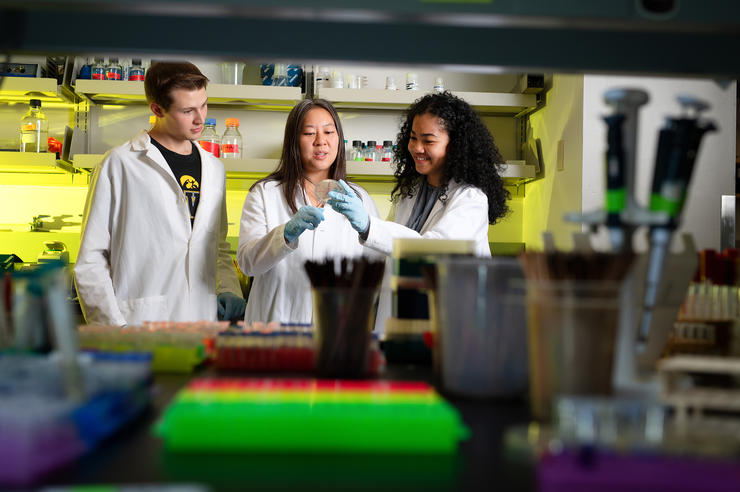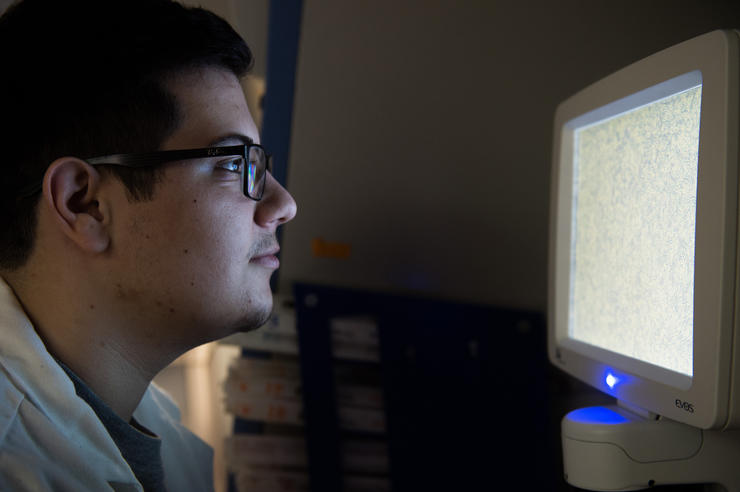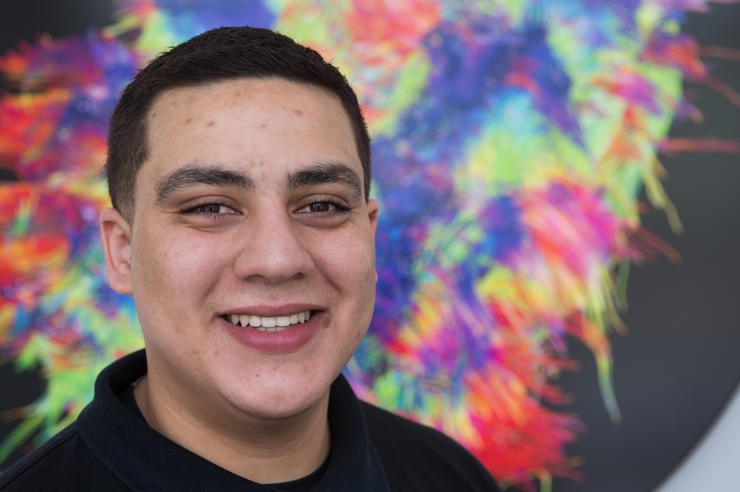Dedicated to having an impact on human health
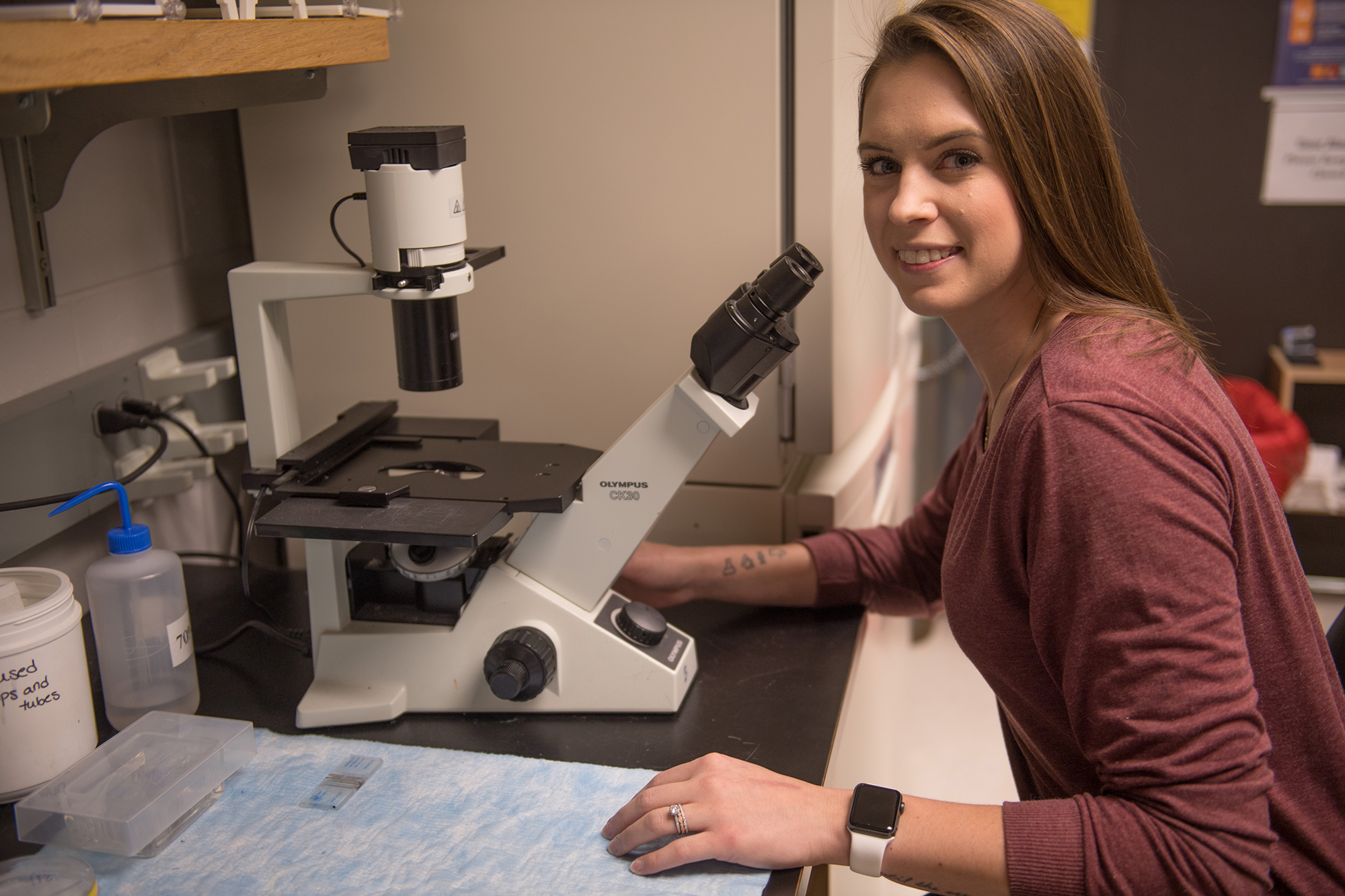
The prognosis is grim for those inflicted with malignant peripheral nerve sheath tumors (MPNSTs), a deadly sarcoma. But a University of Iowa doctoral student is focusing her research efforts on helping the afflicted.
Though rare, MPNSTs are highly aggressive tumors found in both children and adults. And they aren’t responsive to chemotherapy, leaving surgery as the only treatment option. However, even that may not be feasible; the tumors attach to nerve sheaths, making surgery potentially dangerous.
“My research is aimed at helping patients and to assure them that we’re trying to do everything we can to develop new, more effective treatments,” says Jordan Kohlmeyer, who is in her third year in the UI Interdisciplinary Graduate Program in Molecular Medicine.
The ability to analyze and alter gene expression has become a central focus of a great deal of biological research. Scientists within many disciplines are increasingly employing molecular biological approaches to gain new understandings of fundamental processes. The training of UI graduate students in molecular medicine reflects the interdisciplinary nature of research in this area.
Kohlmeyer researches cancer alongside Dawn Quelle, associate professor of pharmacology and pathology at the University of Iowa. Specifically, Kohlmeyer is exploring the role of a new cancer gene, RABL6A, in the development of MPNSTs.
“My work is trying to understand the biology of the cancer itself in an effort to develop novel, meaningful combination therapies that will ultimately help patients,” she says.
Kohlmeyer says they found that a drug known as palbociclib dramatically halts MPNST growth in mice for several weeks before drug-resistant tumors ultimately are observed. She says that finding is typical if just one cancer drug is used, and it supports the use of combination therapy (combination therapy involves using multiple drugs to kill existing cancer cells and cause tumors to shrink, ideally preventing drug resistance and tumor regrowth). Kohlmeyer’s studies are now assessing which combinations of anti-cancer agents work best with palbociclib to eradicate MPNSTs in mice.
A native of Millersburg, Iowa, Kohlmeyer grew up attending University of Iowa athletic events. Though she attended Wartburg College and majored in biology, initially leaning toward medical school after graduation, Kohlmeyer says her interests were steered toward lab research during her senior year at Wartburg.
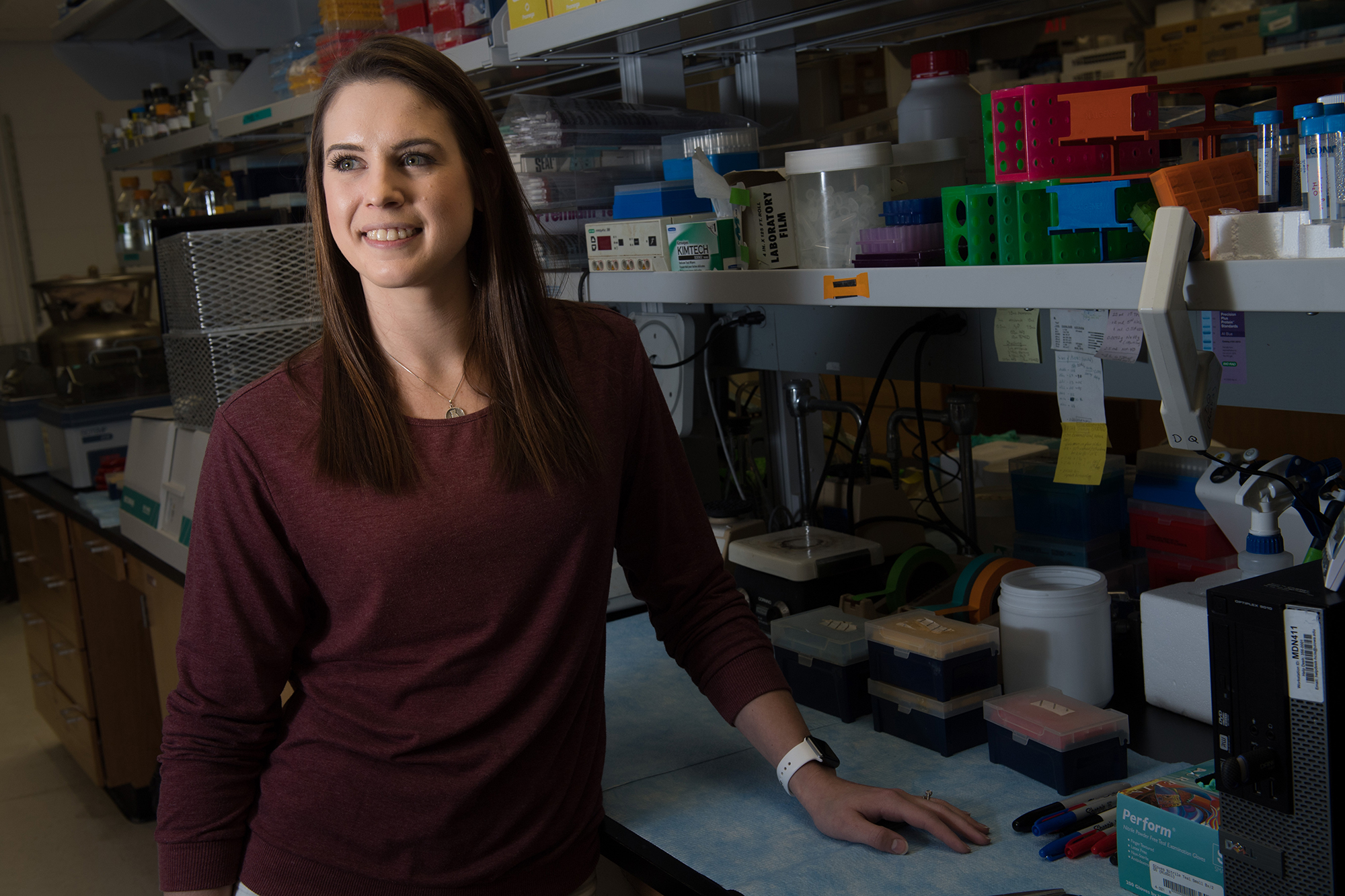
“Since I’m interested in studying cancer and Iowa has a comprehensive cancer center, I knew it would be a great place for me to start my research career. You meet so many different professors who have your best interests at heart.”
That year, Kohlmeyer got her first real experience in research, working with Dr. Stephanie Toering Peters. She also took an anatomy and physiology course that involved evaluating case studies the same way a medical doctor would. While that course was geared toward pre-med students, Kohlmeyer said it sparked her desire to ask questions and use research to find answers. So after graduating in 2015, she accepted a research assistant position in the UI Department of Biochemistry. In 2016, Kohlmeyer entered Iowa’s Interdisciplinary Graduate Program in Molecular Medicine.
“I knew the research facilities here were outstanding,” Kohlmeyer says. “Since I’m interested in studying cancer and Iowa has a comprehensive cancer center, I knew it would be a great place for me to start my research career.”
Kohlmeyer says the university exceeded her lofty expectations. She especially praised the collaborative nature of research at the UI.
“You meet so many different professors who have your best interests at heart,” she says. “Everyone wants to help you and work with you on your research. Especially Dr. Quelle. She believes in collaborative science and will go above and beyond to connect me with other researchers in my field.”
Jordan Kohlmeyer is one of 42 students featured in the University of Iowa’s Dare to Discover campaign highlighting researchers across campus.
Quelle says Kohlmeyer’s research into MPNSTs embodies the idea of multidisciplinary research and that Kohlmeyer’s commitment to collaboration will serve her well in the future.
“Science is all about communicating and working with others,” Quelle says. “Jordan’s project is a great example of that. There is an extraordinary wealth of sarcoma expertise at the University of Iowa, and she’s done a terrific job tapping into that resource, reaching out to both scientific researchers and clinicians who treat MPNST patients to advance her studies.”
Kohlmeyer says she’s not sure where her career will take her after completing the PhD program, but she would like to continue in the cancer field, whether it be in academia or the private sector.
She’ll likely do quite well no matter what track she takes. Quelle says Kohlmeyer is hardworking, determined, and has unlimited potential.
“She is truly dedicated to having an impact on human health,” Quelle says.

